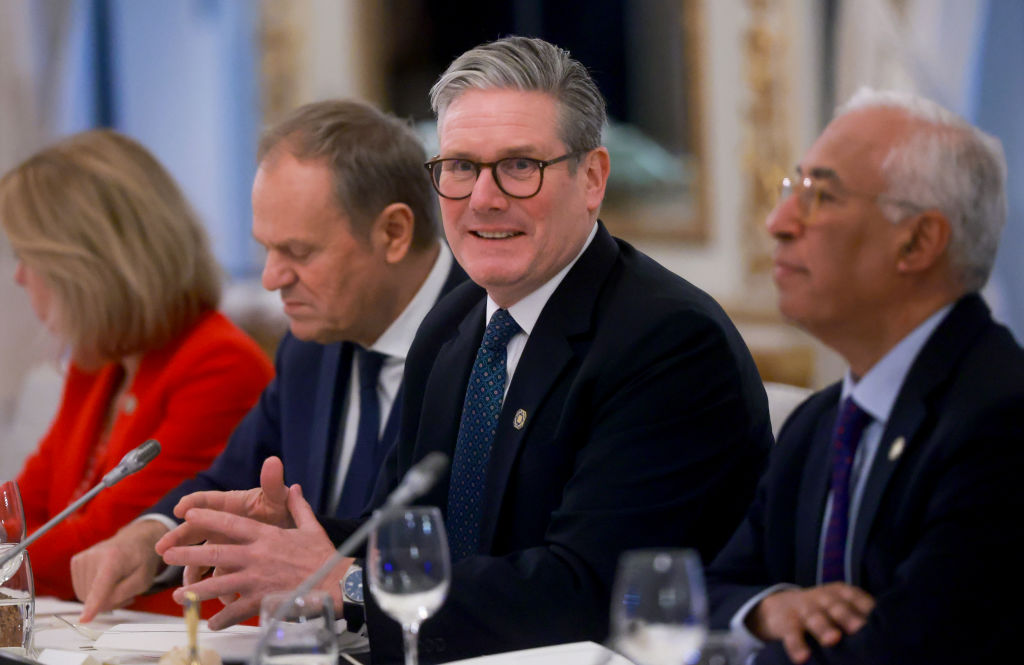Donald Trump has this week shown that he cares more about economic interests over inherited commitments – even to allies. By contrast, Keir Starmer’s handling of the Chagos Islands dispute reveals an entirely different approach to power – prioritising diplomatic acclaim over strategic imperatives. His decision to cede sovereignty of the islands has been framed as a moral and reputational victory, despite deep concerns in Washington. While Trump’s instinct is to wield American leverage unapologetically, Starmer has sought to secure international approval at the expense of Britain’s strategic position.
These two contrasting approaches – Trump’s blunt assertion of national power and Starmer’s deference to global norms – expose the same fundamental dilemma in balancing security, economic interests, and international standing in a way that serves the nation. Both Trump and Starmer illustrate, in different ways, the risks of miscalculating that balance.
Trump is right to demand more from allies, but economic coercion must be wielded carefully to avoid driving partners into China’s orbit
Trump is right to argue that the post-war order placed an asymmetric burden on the United States. For decades, America’s allies have benefited from US security guarantees while sometimes failing to contribute adequately to collective defence. The economic system that Washington built also allowed nations to flourish, while America ran persistent trade deficits.
However, the challenge lies in recognising these imbalances and responding effectively. By imposing tariffs on key allies while simultaneously demanding their strategic loyalty, Trump risks pushing them toward China – the rival he seeks to contain. Economic leverage, when overplayed, can backfire, encouraging allies to diversify their trade relationships to reduce dependence on an unpredictable America. If Canada or Europe felt squeezed, their logical alternative is Beijing, strengthening China’s role when Washington wants to limit it.
Where Trump’s approach risks alienating allies through economic force, Starmer’s handling of the Chagos Islands controversy reflects the opposite miscalculation: placing global approval above hard strategic realities. By pushing ahead with a deal to cede sovereignty to Mauritius – despite warnings from US officials about Chinese influence in the region – Starmer has demonstrated a willingness to trade British leverage for reputational gain.
The Chagos archipelago, particularly Diego Garcia, is home to a critical US military base that serves as a launch point for operations in the Indian Ocean and beyond. The American concern, voiced by Secretary of State Marco Rubio, is that once sovereignty is handed to Mauritius, China could gain further influence over a country that has already joined Beijing’s Belt and Road Initiative. Even with reassurances that the US lease on Diego Garcia will be maintained, Britain has diminished its authority over a key geopolitical asset.
Starmer’s decision reflects a broader pattern: an eagerness to win praise on the world stage by demonstrating Britain’s commitment to international law, even when doing so runs counter to long-term strategic interests. In pursuing a decolonisation narrative, the UK has weakened its position in the Indo-Pacific while raising anxieties in Washington.
Trump and Starmer’s contrasting approaches – one placing hard power above all else, the other privileging soft power and global approval – ironically point to the same lesson. No great power can afford to prioritise economic interests or diplomatic status at the expense of security. A sophisticated grand strategy must integrate all three, ensuring that economic decisions reinforce, rather than undermine, strategic stability.
Trump is right to demand more from allies, but economic coercion must be wielded carefully to avoid driving partners into China’s orbit. Starmer is right to consider Britain’s reputation, but not at the cost of ceding leverage in a region vital to western security. Both leaders, in their way, illustrate what happens when national interest is interpreted too narrowly.
While both Trump and Starmer have exposed the fault lines in their respective national strategies, there is a fundamental difference in the risks they take, though.
Trump’s approach may be blunt and transactional, but it is anchored in hard power: real leverage that can be recalibrated. Starmer, by contrast, is gambling on an illusion: Britain’s soft power and moral standing can substitute for geopolitical weight. However, as Thomas Hobbes warned, ‘covenants, without the sword, are but words, and of no strength to secure a man at all’.
Soft power is meaningless without hard power to underpin it, and a nation that surrenders strategic assets for reputational gain is not acting from a position of strength. The lesson is clear: national sovereignty is the foundation upon which hard and soft power is exercised. In the end, power respects power, not virtue – and a nation that forgets this risks learning it the hard way.







Comments